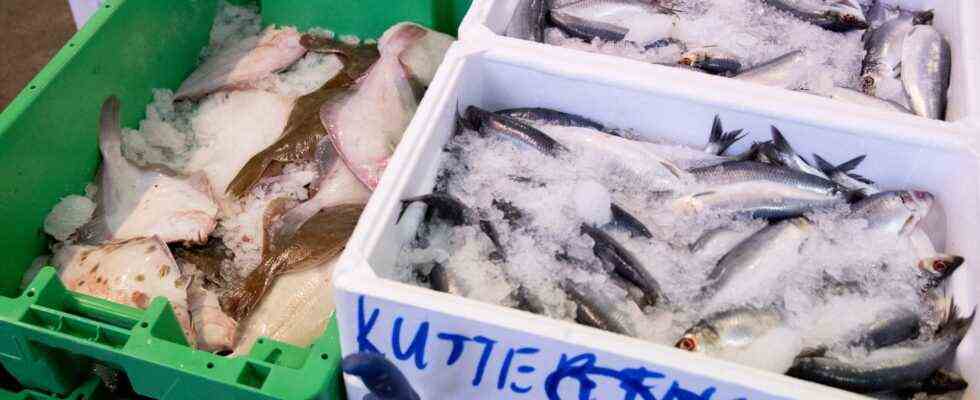Status: 14.12.2021 1:43 p.m.
Pollack, cod and plaice are some of the most popular food fish. Because their stocks in the North Sea are declining, the EU has now set correspondingly lower catch quotas. Herring, on the other hand, can be fished more.
New catch quotas will apply in the North Sea from January. This also applies to German fishermen. In future you will be able to catch 22 percent more herring, but 25 percent less saithe than this year. The cod catch quota has been reduced slightly by two percent. The permissible catches for plaice are also falling by ten percent. The catches for German fishermen for haddock, arctic cod and black halibut in Greenland will remain almost unchanged in the coming year. This decision was made at a meeting of EU agriculture ministers.
Agriculture Minister Özdemir satisfied
The new Federal Agriculture Minister, Cem Özdemir from the Greens, was satisfied and spoke of a balanced compromise. With regard to cod in the North Sea, he would have wished for “a somewhat more ambitious approach”, he said. Environmentalists are also particularly critical of this stock. “All signs point to collapse,” criticized the WWF. More fish is still being fished than is recommended by scientists.
The US environmental protection organization Oceana has also criticized the fact that a third of the catch limits that have now been set are too high. Rupert Howes, head of the MSC organization, which issues a seal for sustainable fisheries, emphasizes the importance of decent management of the stocks and criticizes the fact that several fish stocks are fished more than researchers recommend. But there is improvement: “In 2005, only 25 percent of European stocks were fished sustainably, today it is almost 60 percent.”
Catch quotas based on scientific recommendations
The EU states set the total allowable catches for certain waters every year. On this basis, the respective national catches are allocated to the individual countries by means of fixed distribution keys. The basis of the negotiations is a submission from the EU Commission, which is primarily based on scientific recommendations. Many fish stocks are in a rather poor condition.
In October the EU fisheries ministers agreed on fishing quotas for the Baltic Sea. Due to the persistently poor state of stocks, fishermen will not be allowed to catch herring and cod in large parts of the Baltic Sea in the coming year, unless they are caught in the nets as bycatch.
No agreement with the UK yet
There has not yet been agreement on the waters divided by the EU and Great Britain. “Despite our best efforts to conclude the consultations on time, these are still ongoing with the UK on fishing quotas for 2022,” said EU Environment Commissioner Virginijus Sinkevicius. An agreement should be found “as soon as possible” with Great Britain.

